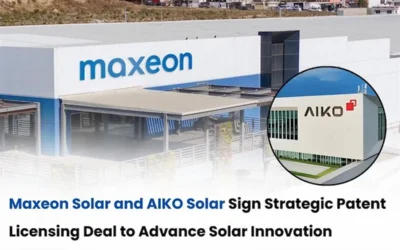
In today’s era, innovation is money—and patents are among the most valuable assets an organization owns. Having a patent doesn’t necessarily mean it’s worth money, however. To truly observe your intellectual property (IP), you’ll need to get acquainted with patent valuation—the practice of estimating the economic value of a patent. Are you a company in need of fund raising, an investor considering IP assets, or a firm needing a merger or licensing deal? Patent valuation is part of your choice that you simply can’t do without. Here, in this book, we provide you with an overview of what patent valuation is, why you need to do it, how you do it, and provide answers to frequently asked questions regarding it.
Meaning of Patent Valuation?
Valuation of a patent or patent portfolio is the monetary calculation of the market value of an intangible asset. Intellectual property, unlike tangible assets like machinery or property, is not physical and therefore its measurement is more difficult and complex. It is supposed to give an approximation of the economic value of a patent either by its revenue generation, cost savings, or position gain within the market.
There are various things to be considered while valuing a patent:
- Strength in law of the patent
- Applicability of invention to the technology
- Market size covered
- Position in marketplace
- Remaining time on patent
Any money it has earned in the past or will earn in the future A patent is valuable even if it is not generating cash currently—particularly if it secures future market position or safeguards entry into a market.
The Significance of Patent Valuation
The strategic significance of patent valuation cuts across different areas of business. These are the main reasons why it is important:
Strategic Business Planning
Having your patent portfolio value enables you to make strategic R&D spending decisions, product development, and entry strategies.
Licensing and Monetization
Businesses can monetize patents through Patent licensing them out. Understanding the valuation assists in negotiating fair terms of licensing and a satisfactory return on investment.
Raising Finance and Sourcing Investment
Successful, value capital-patent businesses raise more finance. Your IP gives the financial return and competitive edge investors desire.
Initial Public Offerings, Mergers, and Acquisitions
IP assets may make a material contribution to the value of a company in mergers and acquisitions. Proper patent valuation is required to support due diligence and negotiation.
Tax and Accounting Use
Patent valuations may be required by companies for tax reporting, amortization, or financial regulatory reports like IFRS or GAAP.
Litigation and Risk Management
If there is infringement or Patent litigation, a properly documented patent valuation can be used to help support damage awards, settlements, or court judgments.
Standard Patent Valuation Strategies and Methods
Three of the most popular methods employed to estimate the value of patents are utilized. The preferred method would depend on the particular purpose for which valuation must be performed, availability of data, and industry practice.
Cost-Based Approach
This approach values by the money spent on developing the invention or money it would cost to reproduce it. It takes into account R&D cost, labor, tests, and legal document charges. It is used on a regular basis when conducting internal valuations but does not capture potential earning power in the future.
Market-Based Approach
This approach compares the patent with other similar IP sold, licensed, or appraised on the open market. It relies on benchmarks to establish a reasonable price. But it is limited by access to appropriate comparable data.
Income-Based Approach
This is the most popular and lasting method for worthwhile patents. It measures the ability of the patent to produce future income, for example, licensing revenues, sales of products, or cost savings. Future cash flows are reduced to present value.
Factors Affecting Patent Valuation
There are various internal and external considerations which affect the valuation of a patent:
- Patent time: A short time left on a patent is less valuable than a longer one.
- Enforceability: Powerful, well-crafted patents with extensive claims are easier to enforce and hence more valuable.
- Market size: A patent on a large expanding market product has greater potential.
- Competitive advantage: If the patent acts as a good barrier to entry, it is more valuable strategically.
- History of performance: Past revenue or licensing deals add substance to the future earning capacity of the patent.
Read More: OPPO Grants Global 5G SEP License to Leading Chinese Carmaker
Conclusion
Turn Patents Into Powerful Business Assets In an increasingly knowledge-driven economy, your patents can be one of your greatest assets—if you understand their value Patent valuation offers companies the ability to unlock the dollars and strategic worth of their intellectual assets From investment and M&A to litigation and licensing, knowing the value of your patent will guide better business decisions, attract investors, and place you in a position for competitive advantage. Inventor, entrepreneur, or corporate leader, it’s an important step toward realizing maximum return on your invention to invest in quality patent valuation.









